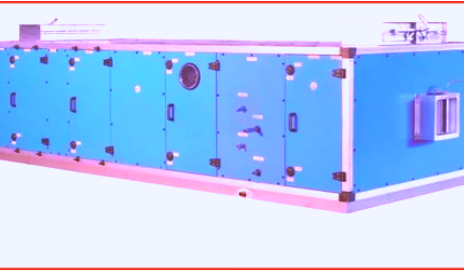Today’s business environment is highly competitive and dynamic, which is why timely management of customer relations and business activities is vital for success. That is where the CRM Tracking System is of great utility. A CRM accounting software is a game changer in the management of a business since it offers direction, increases customer interactions, and increases efficiency. In this blog post, we will dive deep into how tracking your business using a CRM system works, the pros, features, and tips to follow.
Introduction to CRM Systems:
CRM systems can be defined as a means of keeping records of the relationships between an organization and its users. CRM Tracking System employs collected information about customer interactions with a firm in an attempt to enhance business relations for the purpose of ensuring that customer loyalty is achieved in order to enhance sales. The key functions of a CRM system include:
- Contact Management:
Management of customer information and data.
- Sales Management:
Monitoring of sales activities and their results.
- Customer Service:
The management of customers’ support and services concerns.
- Marketing Automation:
Coordinating the marketing campaigns and also monitoring their impact on the intended audience.
- Reporting and Analytics:
Offering information about customers and organization’s results.
- Advantages of Using a CRM Tracking System:
1. Enhanced Customer Relationships
This is facilitated by the fact that CRM system compiles a comprehensive list of records of the customer interactions and their preferences as well as their history. This is useful in the development of better relations with customers, their satisfaction and loyalty.
2. Improved Sales Performance
A CRM system usually contains features that are used for managing the sales pipelines, tracking leads and sales performance. This assists the sales personnel in managing the leads, prioritizing on the leads that will likely close more deals and ultimately increase sales and revenues.
3. Efficient Marketing Campaigns
Marketing automation is a tool through which CRM helps businesses to design, implement and monitor marketing campaigns. This is because through analyzing the customer data, business can categorize their target market, customize their messages and even assess the effectiveness of their marketing strategies hence improving the level of engagement and conversion.
4. Better Customer Service
Customer relationship management systems remain important in the organization’s functioning since they help to maintain the centralization of customer service and support tickets. This fosters faster and efficient response from support teams to customers hence improving the customer experience.
5. Informed Decision-Making
A CRM system has strong reporting and analysis functions that enable one to understand the customers’ behaviors, sales activities, and overall business performance. It assists users including business people and those in leadership positions to make sound decisions and come up with suitable strategies to enhance their businesses.
- Main Characteristics of a CRM Tracking System:
1. Contact and Account Management:
This feature enables organization to capture and archive extensive information about the clients such as their contact info, interaction records, and account standing. It gives a holistic view of the customer hence facilitating the ability to interact with him/her in a tailored manner and manage the relationship.
2. Lead and Opportunity Management:
The CRM systems assist in the management of leads from the time they are identified to the time that they are closed. With the help of sales pipeline and by tracking the movement of contracts, a company can define potential problems in the sales process and take appropriate measures to accelerate the contracts’ closure.
3. Sales Forecasting:
Thus, the precise prediction of sales is critical to strategic management. Based on the data of the past and the current rate of sales, the CRM system determines the probable future sales, so the business has the possibility to optimize the resources and determine the achievable goals.
4. Workflow Automation:
By automating follow up emails, appointment setting, record updating and other repetitive tasks, the work is eased and the chances of making mistakes are also eliminated. This enables the teams to work on other crucial activities that create value in organizations and businesses.
5. Reporting and Analytics:
There are many reporting and business analysis tools that are available with CRM systems and that give different perspectives of the business. Through the best erp software uae are flexible and extensible panels and views let managers track KPIs and review progress toward objectives.
6. Integration with Other Systems
A good CRM system should easily interconnect with other business applications including Email, Calendar, Accounting and e-commerce. This makes it easier for information to be passed across various systems hence increasing efficiency and reducing on duplicity of work.
Implementing a CRM Tracking System and Its Use:
1. Selecting a CRM Solution:
Currently, there are many CRM solutions that can be implemented in the company with different functionalities. Some of the things to look at when selecting a CRM system include the following; usability, expandability, connectivity, and price. Choose a solution that meets your business requirements and your wallet’s capacity.
2. Ensure User Adoption:
The use of a CRM system can only be beneficial if all the required workforce employs it as part of their daily work process. Forced use of the system is counterproductive; hence, invest in training and constantly be supportive to make the users feel at ease when using it and also to understand its advantages. The last engagement should be encouraging of feedback and may entail changing the layout to accommodate the users and their satisfaction.
3. Maintain Data Quality:
Information in a CRM Tracking System must be credible and must reflect the current state of affairs. It is necessary to set up the procedures for cleaning the data and validating the results to remove the duality of records, remove errors, and complete missing data. This will help to make sure that within the course of using the CRM system, you’re getting relevant information and data to help in decision-making processes.
4. Leverage Automation:
Utilize all the options that your CRM Tracking System provides in terms of automation of its processes. Use templates for repetitive processes to automate, set up workflow rules and templates for daily or weekly activities. This will help save time and also minimize on the number of mistakes that your team can make, this will also free up your team to do more important work.
5. Monitor and Measure Performance:
It is important to set up a schedule of how often you should be checking on the performance of the CRM system and which metrics or reports are most useful. Determine how the system supports your business goals and define the issues that should be addressed. These discoveries can then be applied when making decisions and when managing your CRM strategy.
Conclusion:
A CRM Tracking System is a very useful tool that may be effective for businesses to manage customer relationships, and increase productivity as well as growth. Through consolidation of data, improvement of customer relations, and offering beneficial information, a CRM system allows a business to remain relevant in the current global economy. Only if the best practices are in force and all important features are utilized, the CRM system will be the most valuable and helpful tool in achieving the business goals.




